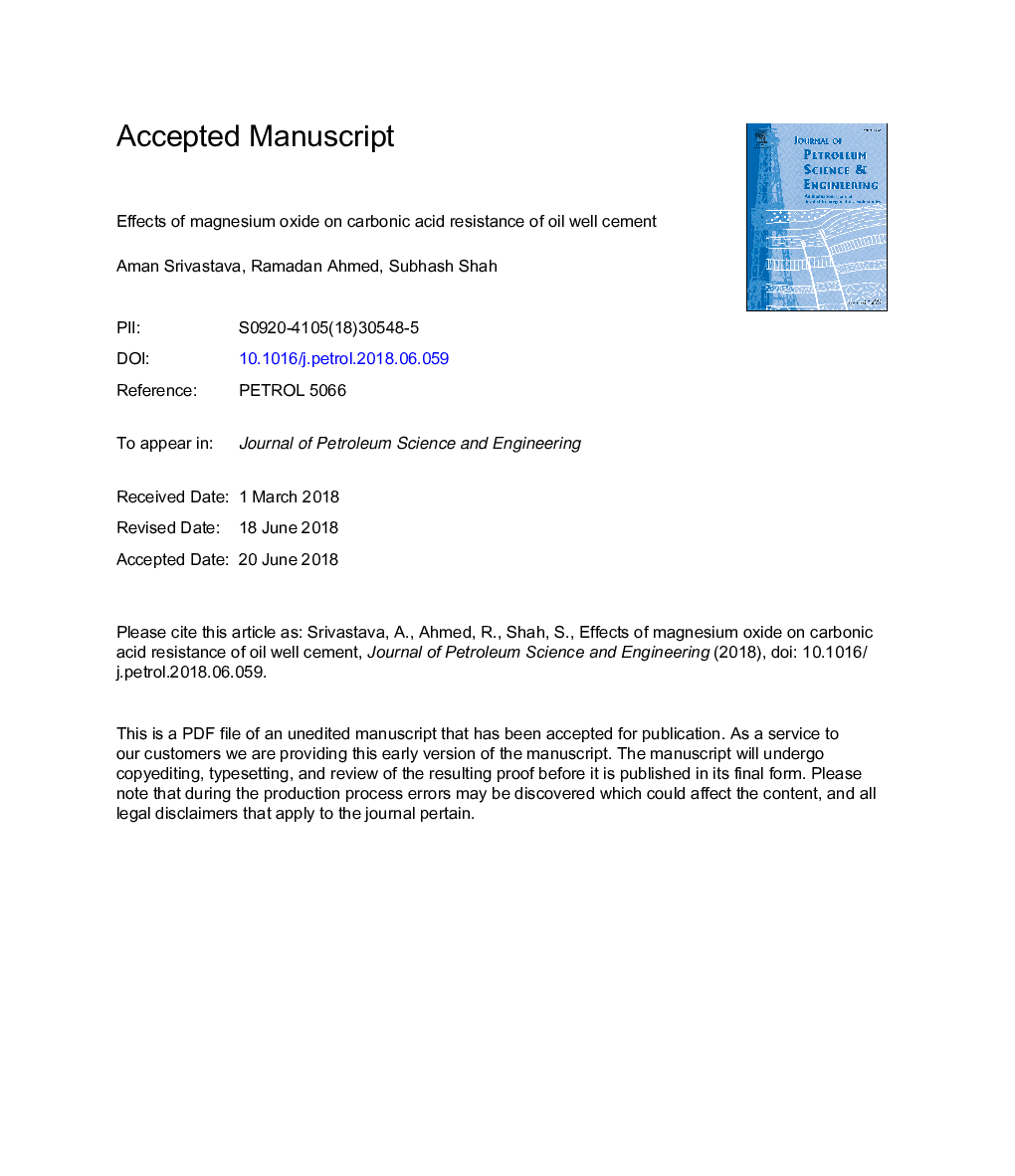| Article ID | Journal | Published Year | Pages | File Type |
|---|---|---|---|---|
| 8124435 | Journal of Petroleum Science and Engineering | 2018 | 25 Pages |
Abstract
This paper presents the results of an experimental study on the effects of magnesium oxide additive on the performance of oil well cement under a high-pressure high-temperature (HPHT) carbonic acid environment. Magnesium oxide (MgO) is a well-known expanding agent that improves sealing performance of cement. However, the performance of MgO-based cement has not been tested in a carbonic acid environment. Therefore, to investigate the impact of MgO on carbonic acid resistance of cement, two cement slurry formulations: Class H cement with 35% silica (baseline or HS) and baseline cement with MgO (HSMG) were compared after exposure to an acidic environment. To evaluate their performance, cylindrical cores and shear bond strengths (SBS) samples were prepared and aged in HPHT autoclave containing brine (2% sodium chloride solution) saturated with mixed gas containing CH4 and CO2. Six aging tests were conducted varying CO2 concentration, temperature, and pressure. After aging for 14 days at constant pressure and temperature, the samples were recovered, and their physical (bond and compressive strength, porosity and permeability) and mineralogical composition were measured and compared with those of unaged samples. The results suggest that addition of 5% MgO reduces the carbonation of cement and could potentially prolong the operational life of cement by protecting its binding components (calcium hydroxide and calcium silicate hydrate).
Related Topics
Physical Sciences and Engineering
Earth and Planetary Sciences
Economic Geology
Authors
Aman Srivastava, Ramadan Ahmed, Subhash Shah,
